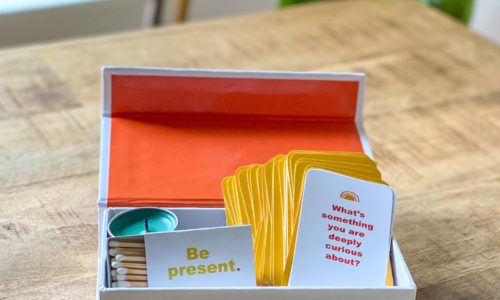Everything we touch in a day has an economic or monetary story.
Rewind. As a child, my parents didn’t discuss money with me. This was not very helpful. As a young adult, I opted to take my college Economics class on a Pass/Fail basis. This was even less helpful. “Passing” is far from mastering. I set out into the world as a happy, visionary woman believing she was terrible at anything financial.
Fast forward. I survived just fine on my own albeit with some ragged moments of financial decision-making. And now I am married with children. I want to do this chapter of parenting better for them. I want us as a family to talk about money frequently. I hope my boys will feel empowered in this important, and unavoidable, realm of living as a human on planet earth. I want them to be free of debt, save money and make complex financial life choices handily.
Acton Academy plays into this hope. Inspired by an idea from my ever-entrepreneurial husband, Jeff, our young geniuses created their own economy at Acton Academy. The currency is the Eagle Buck. The students themselves are the regulators, bankers, customers and owners.
On the surface this system may appear simplistic – even crass. Are we focusing purely on external motivation? Are we paying for good behavior and taxing bad behavior? Is this all too base an answer for the complexity and beauty of human behavior?
Come listen in for a while. In the engaging interactions amongst our learners during the school days, you will hear talk about inflation, supply, demand, cost, value, fiat money, savings, debt, fairness, distribution. Without knowing it, they are learning real world Finance and Economics. Not a textbook, expert or lecture in earshot.
The Eagle Bucks system is a game in economics with real life consequences. Like any good game there is conflict, anger, annoyance, joy, frustration, competition, laughter, punishment, reward, accomplishment, angst, learning. In this game there is the opportunity for our young people to understand more fully themselves and their peers; to learn to negotiate and seek justice; to weigh costs and benefits; to experience accountability.
Terry Heick in TeachThought shares insights into this concept of gamification and learning: http://www.teachthought.com/learning/how-gamification-uncovers-nuance-in-the-learning-process/
Understanding real life choices in terms of economics is a reality our children may not face now but undoubtedly will in their futures. I have pushed back on Eagle Bucks at times because it is hard and feels emotionally distracting. So did talking with my Dad about money.


